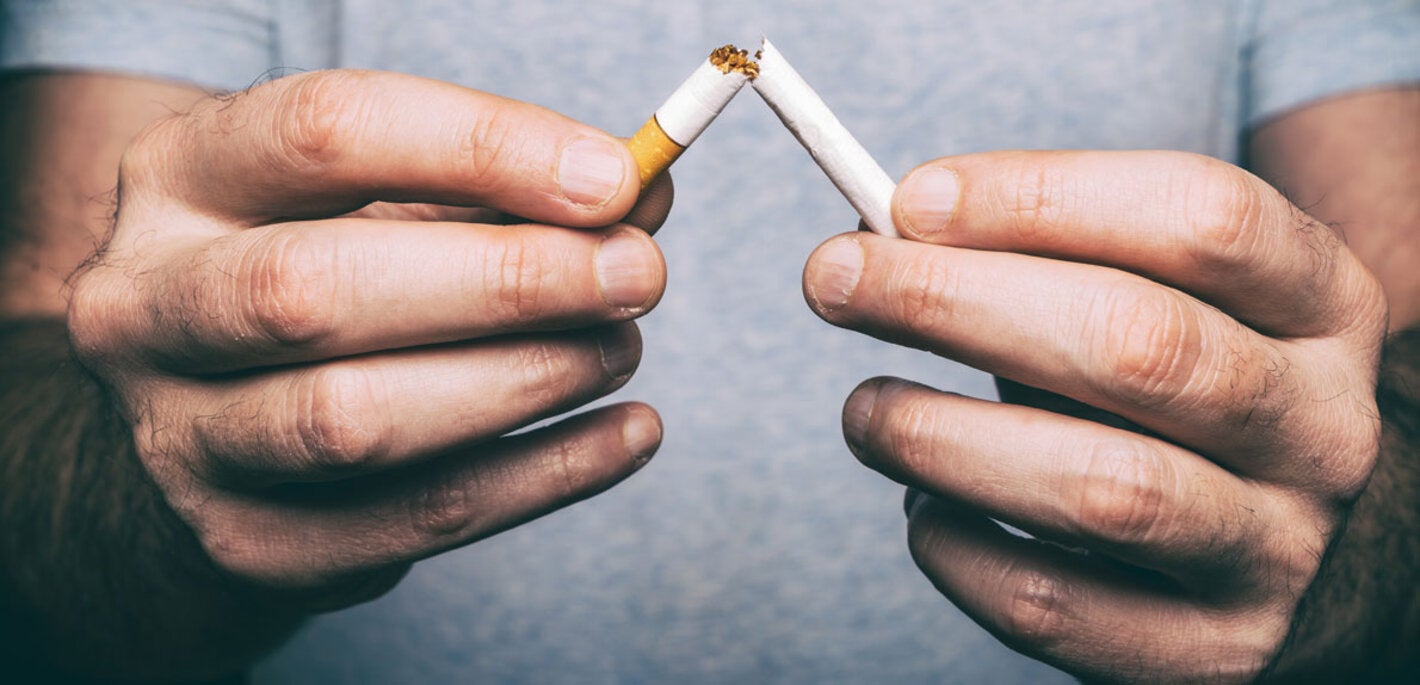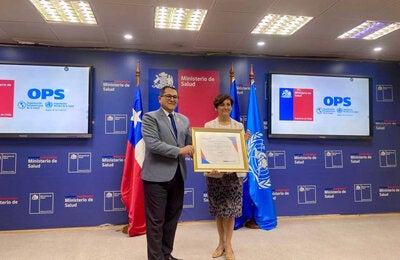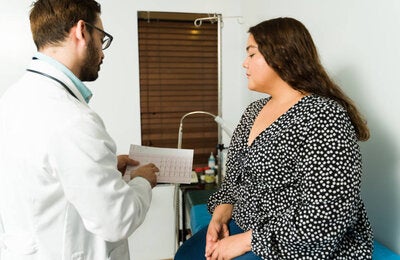
Washington, D.C., 16 May 2012 (PAHO/WHO) — In observance of World No Tobacco Day, May 31, the World Health Organization (WHO) and the Pan American Health Organization (PAHO) will honor leading tobacco control advocates from Brazil and Mexico and the nongovernmental organization Corporate Accountability International, for their efforts to counter the influence and actions of the tobacco industry in the Americas.
WHO will honor Dr. José Agenor Álvares da Silva, Director of Brazil's National Health Surveillance Agency (ANVISA), while PAHO will recognize Senator Ernesto Saro Boardman, President of the Health Commission in the Mexican Senate, and the Boston-based nongovernmental organization Corporate Accountability International.
This year's World No Tobacco Day campaign focuses on efforts by the tobacco industry to undermine the WHO Framework Convention on Tobacco Control (WHO FCTC). The FCTC is world's first international public health treaty and requires participating countries to adopt policies and measures aimed at reducing tobacco consumption and protecting people from secondhand smoke.
A special award from WHO Director-General Margaret Chan will be given to Dr. Álvares, who played a key role in promoting FCTC ratification in Brazil in 2005. As Director of ANVISA, he faced repeated legal challenges from the tobacco industry to tobacco control measures developed by his agency. In 2011 he played a key role in the development of a new set of tobacco measures that include restrictions on the use of additives and flavorants in tobacco products and regulations on tobacco advertising at the point of sale. Still under discussion, the measures have provoked strong opposition from the tobacco industry.
PAHO will honor Senator Ernesto Saro, President of the Health Commission of the Mexican Senate and the sponsor of the 2008 General Law for Tobacco Control, which was the country's first law specifically aimed at tobacco control. Saro also spearheaded successful efforts to increase taxes on tobacco products and has introduced reforms to align the 2008 law more closely with the FCTC. The reforms include a ban on smoking in enclosed public places, larger health warnings on tobacco packaging, and the prohibition of all advertising, promotion or sponsorship of tobacco products. They would also give authority to the Ministry of Health to propose tax policy based on public health considerations.
PAHO will also recognize Corporate Accountability International, a Boston-based NGO that has waged campaigns against the tobacco industry, including a documentary film about youth-oriented tobacco promotion and global political influence-peddling on the part of the tobacco industry. Corporate Accountability International is a member of the Framework Convention Alliance, an umbrella alliance that supports the FCTC and whose Latin America program has contributed to tobacco control throughout the region.
Tobacco use is one of the leading preventable causes of death, claiming the lives of 6 million people each year, more than 600,000 of them due to exposure to second-hand smoke.
In its preamble, the FCTC recognizes "the need to be alert to any efforts by the tobacco industry to undermine or subvert tobacco control efforts and the need to be informed of activities of the tobacco industry that have a negative impact on tobacco control efforts." It urges countries to protect tobacco control policies from "commercial and other vested interests of the tobacco industry in accordance with national law" and recommends raising public awareness about tobacco industry interference with tobacco control policies.
"World No Tobacco Day" is held on May 31 each year to call attention to the harmful effects of tobacco use and to promote public health measures to reduce consumption of tobacco products and exposure to secondhand smoke.
PAHO, which celebrates its 110th anniversary this year, is the oldest public health organization in the world. It works with its member countries to improve the health and the quality of life of the people of the Americas. It also serves as Regional Office for the Americas of WHO.



